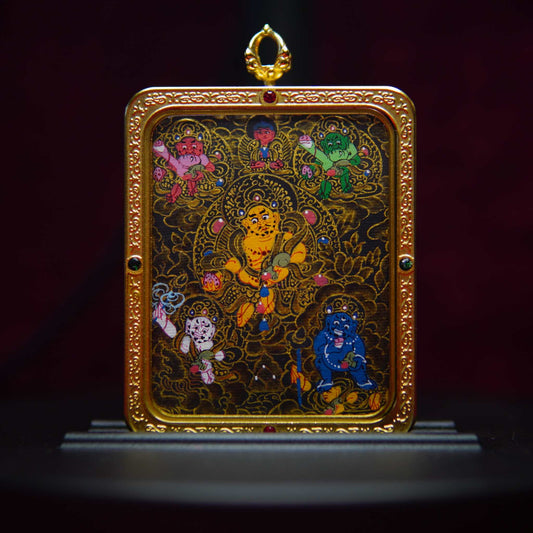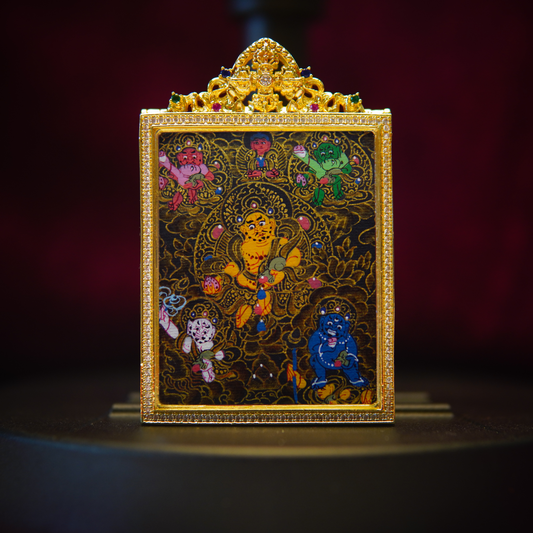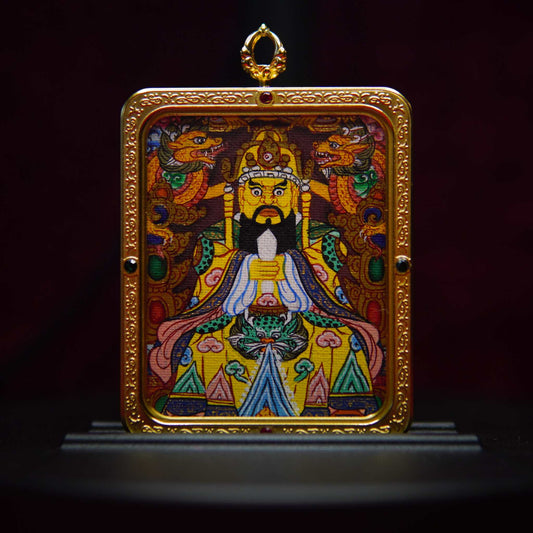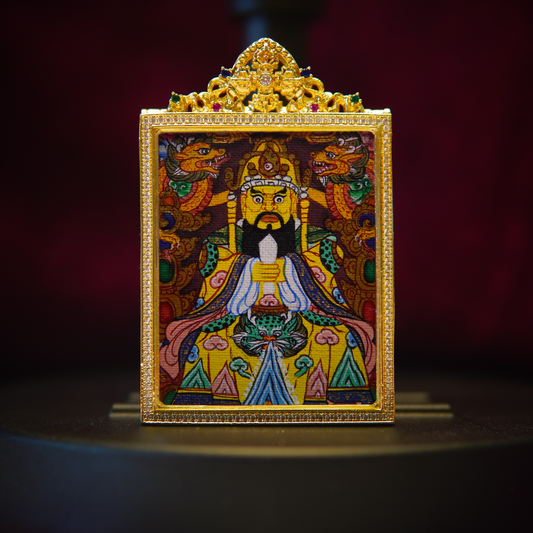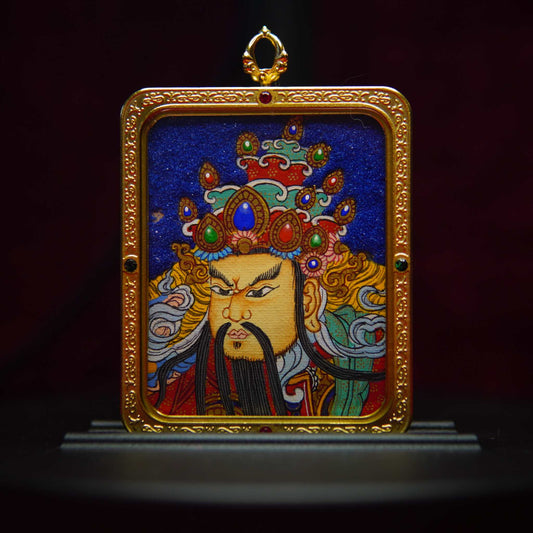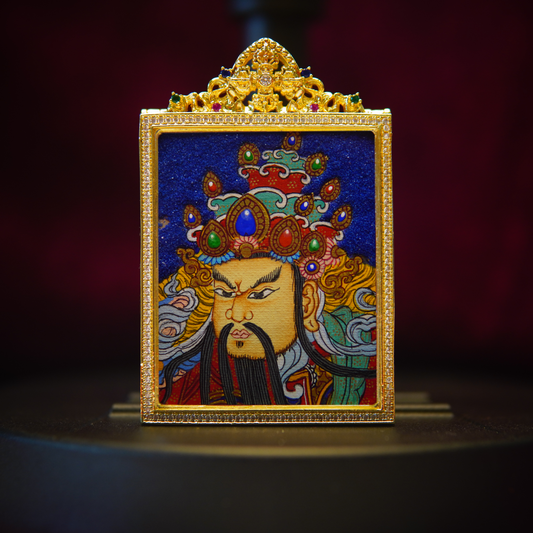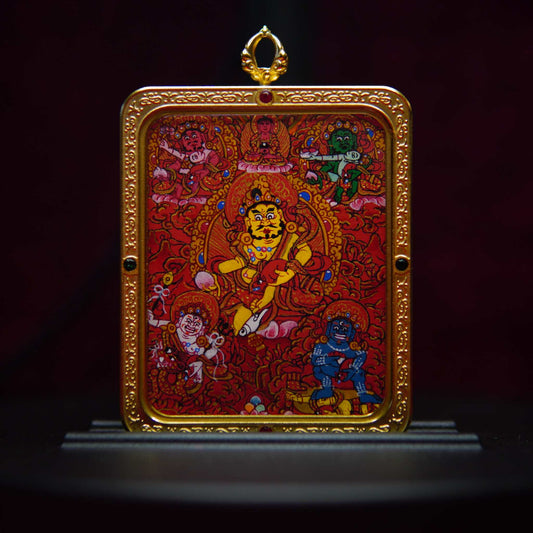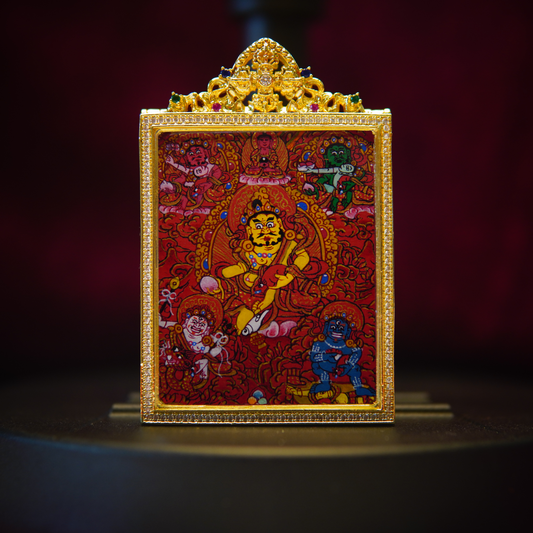Why Do Buddhists Say "Amituofo"? Meaning, History, and Practice
TapitaWhat Does "Amituofo" Mean?
"Amituofo" (阿弥陀佛) is the Chinese transliteration of "Amitabha Buddha," also known as the Buddha of Infinite Light. In the Pure Land tradition of Mahayana Buddhism, particularly popular in China, Taiwan, Japan (as Amida), and Vietnam (as A-di-đà), Amitabha is revered as a celestial Buddha who vowed to help all beings attain enlightenment and be reborn in his Pure Land (Sukhavati), a realm of peace and liberation.
The name "Amituofo" carries the essence of boundless compassion, wisdom, and light. Saying or chanting this name is not just a greeting—it's a spiritual practice.
Origins in Pure Land Buddhism
Pure Land Buddhism originated in India but found its most vibrant expressions in East Asia. According to the Amitabha Sutra and Infinite Life Sutra, Amitabha made 48 vows, one of which promises rebirth in his Pure Land to anyone who sincerely recites his name with faith and devotion.
This led to the core practice of the tradition: Nianfo (念佛), or the mindful recitation of the Buddha’s name—"Namo Amituofo" (南无阿弥陀佛), which means "Homage to Amitabha Buddha."

Why Do People Chant or Say "Amituofo"?
- As a Greeting and Blessing
- Much like "Namaste" in Hindu cultures, "Amituofo" is often used as a respectful greeting among Buddhists, especially in monastic communities and temples. It conveys goodwill, compassion, and spiritual blessings.
- To Cultivate Mindfulness and Devotion
- Repeating Amituofo’s name helps anchor the mind in compassion and clarity, quieting distractions and strengthening faith.
- To Prepare for Rebirth in the Pure Land
- It’s believed that calling Amituofo at the time of death ensures that one’s consciousness will be guided to the Pure Land, bypassing samsaric rebirth cycles.
- As a Mantra for Protection and Peace
- Many chant Amituofo in times of fear, illness, or grief. It’s seen as a spiritual shield and source of inner strength.
How to Pronounce "Amituofo"
In Mandarin, "Amituofo" is pronounced:
Ā-mí-tuó-fó
The tones are: 1st (Ā), 2nd (mí), 2nd (tuó), 2nd (fó).
In other languages:
-
Japanese: Amida Butsu
-
Vietnamese: A-di-đà Phật
-
Korean: Amitabul
All carry the same meaning and are used similarly in daily devotion and chanting.
Modern Use in Daily Life
Today, you’ll hear "Amituofo" in:
-
Buddhist ceremonies and liturgies
-
Funerals and memorials, to offer peace to the deceased
-
Everyday conversations in Buddhist communities, as a greeting or farewell
-
Silent repetitions during meditation or while wearing a Buddha pendant
It’s even become common on Chinese social media platforms as a sign of goodwill or gentle commentary.
Symbolism in Sacred Jewelry
While saying "Amituofo" is a verbal practice, wearing a pendant of Amitabha Buddha can be a visual and energetic expression of the same devotion. At ZenDo Thangka, our Amitabha Thangka necklaces are inspired by traditional Tibetan art and meant to support daily mindfulness and spiritual connection.
Combining verbal recitation with sacred imagery helps deepen your connection to Amitabha’s vow of unconditional compassion and light.
Final Thoughts: A Simple Name, Infinite Meaning
To say "Amituofo" is to call out to infinite light, infinite life, and infinite compassion. Whether you use it as a mantra, a greeting, or a personal practice, this name carries centuries of hope and liberation.
In a noisy, chaotic world, a single name said with sincerity can bring profound peace.
Amituofo.

